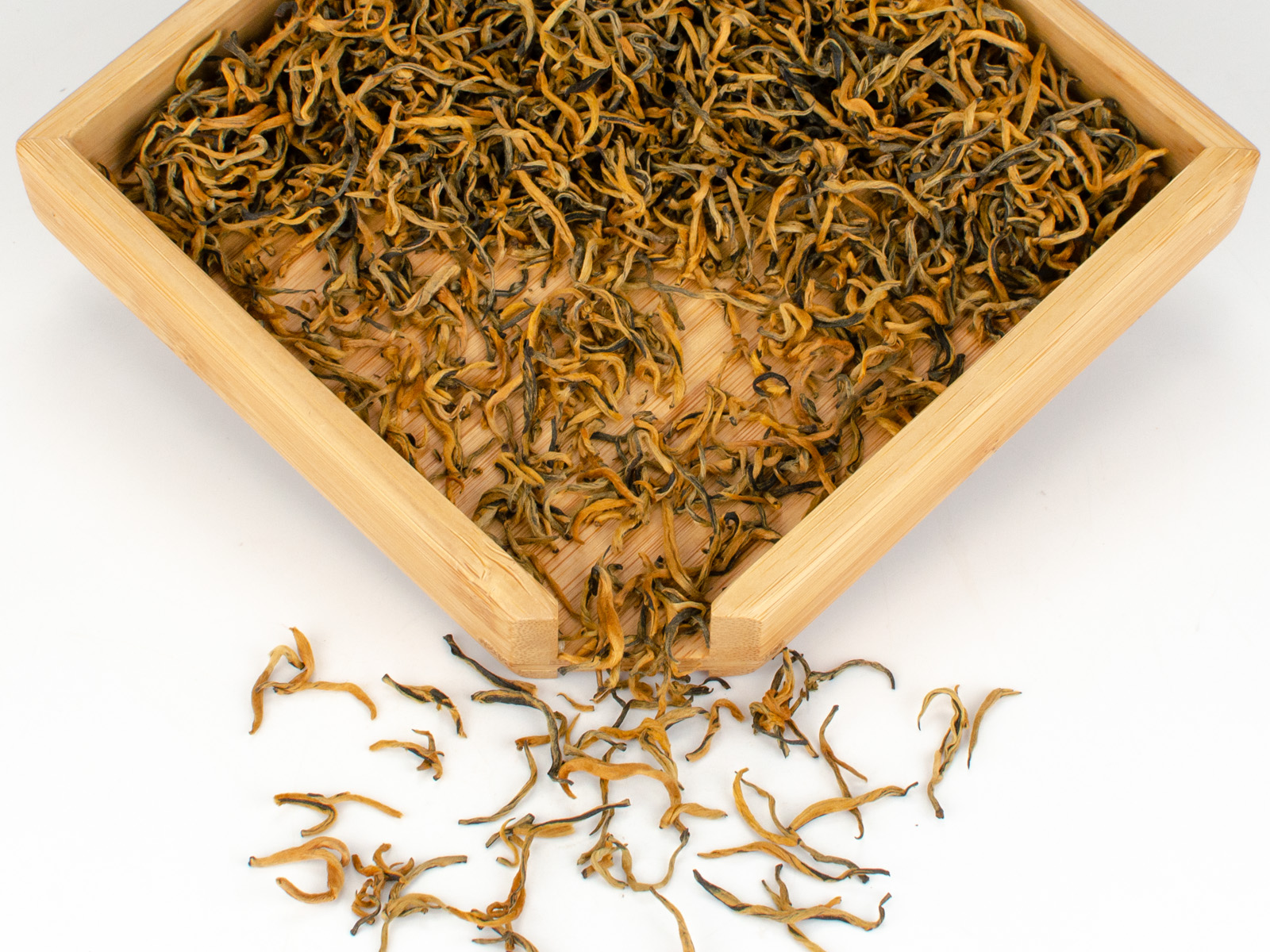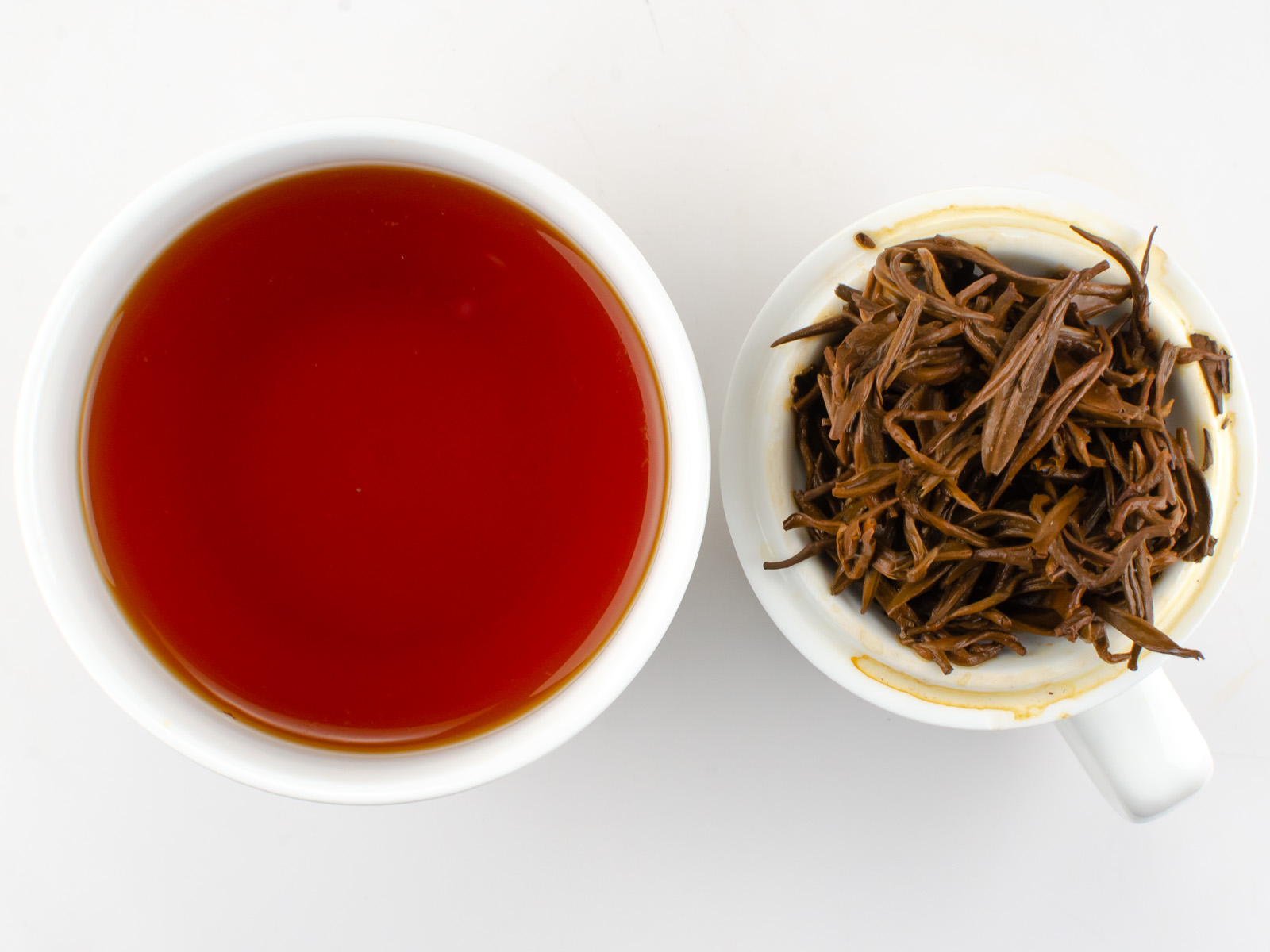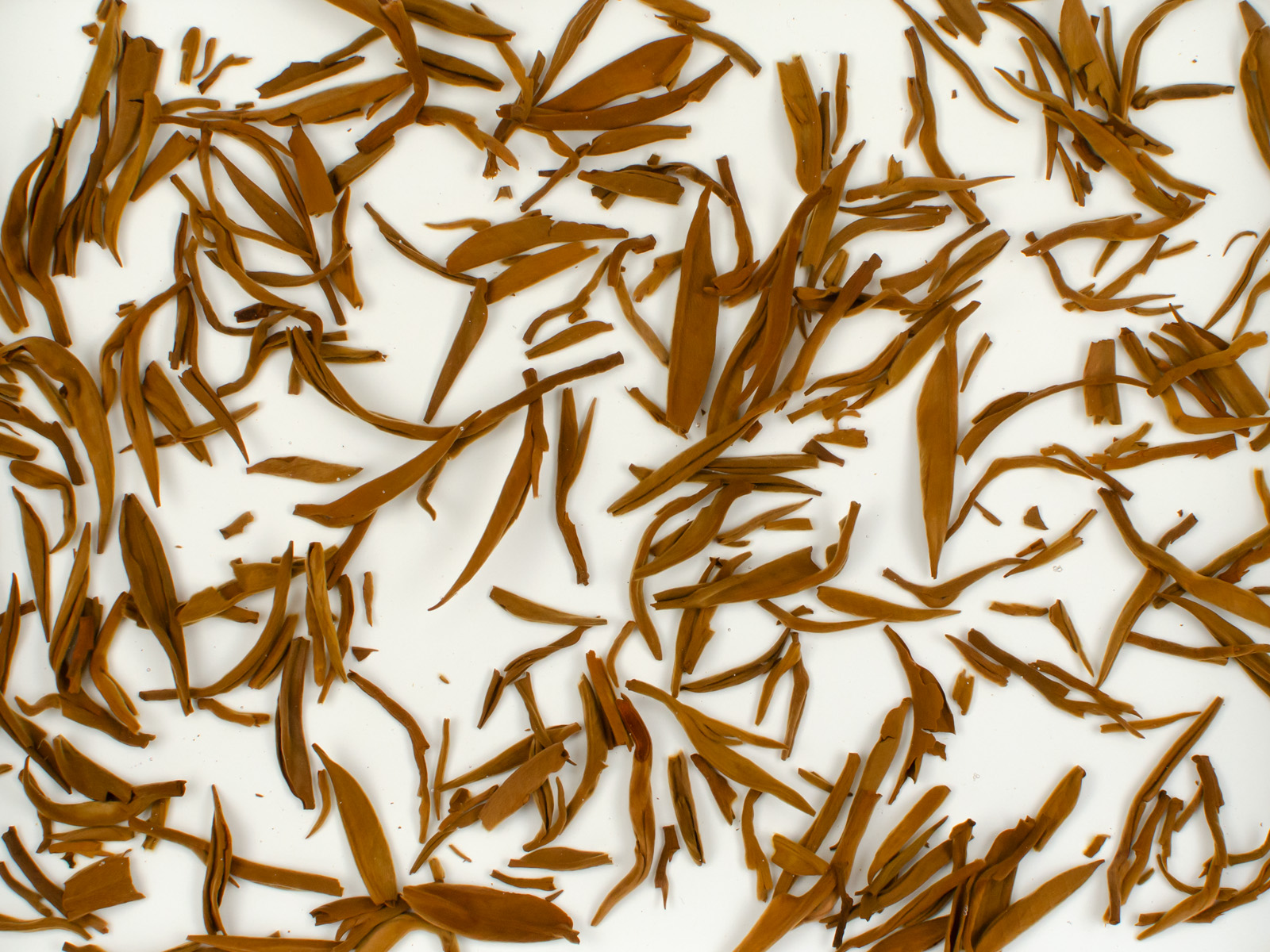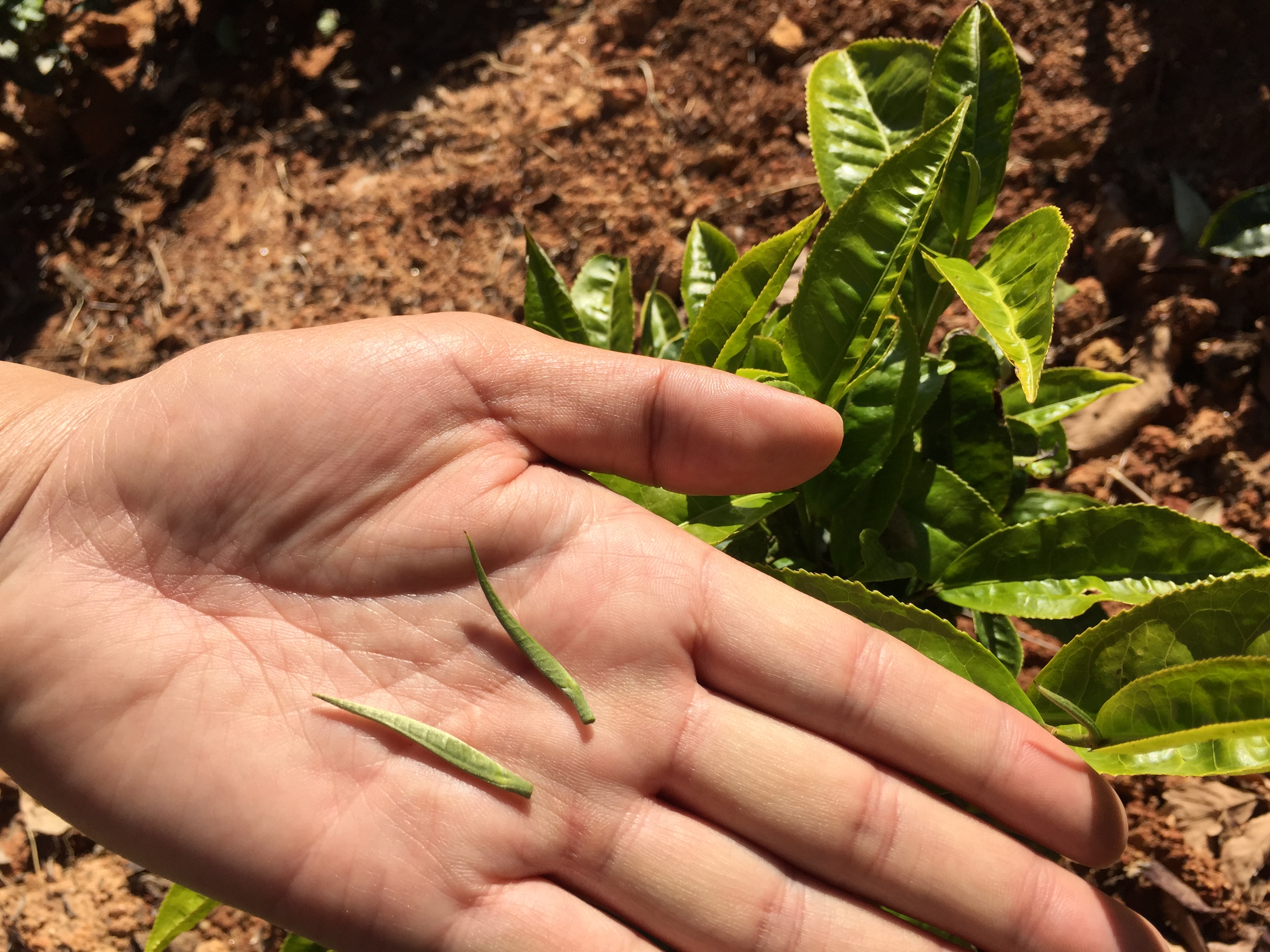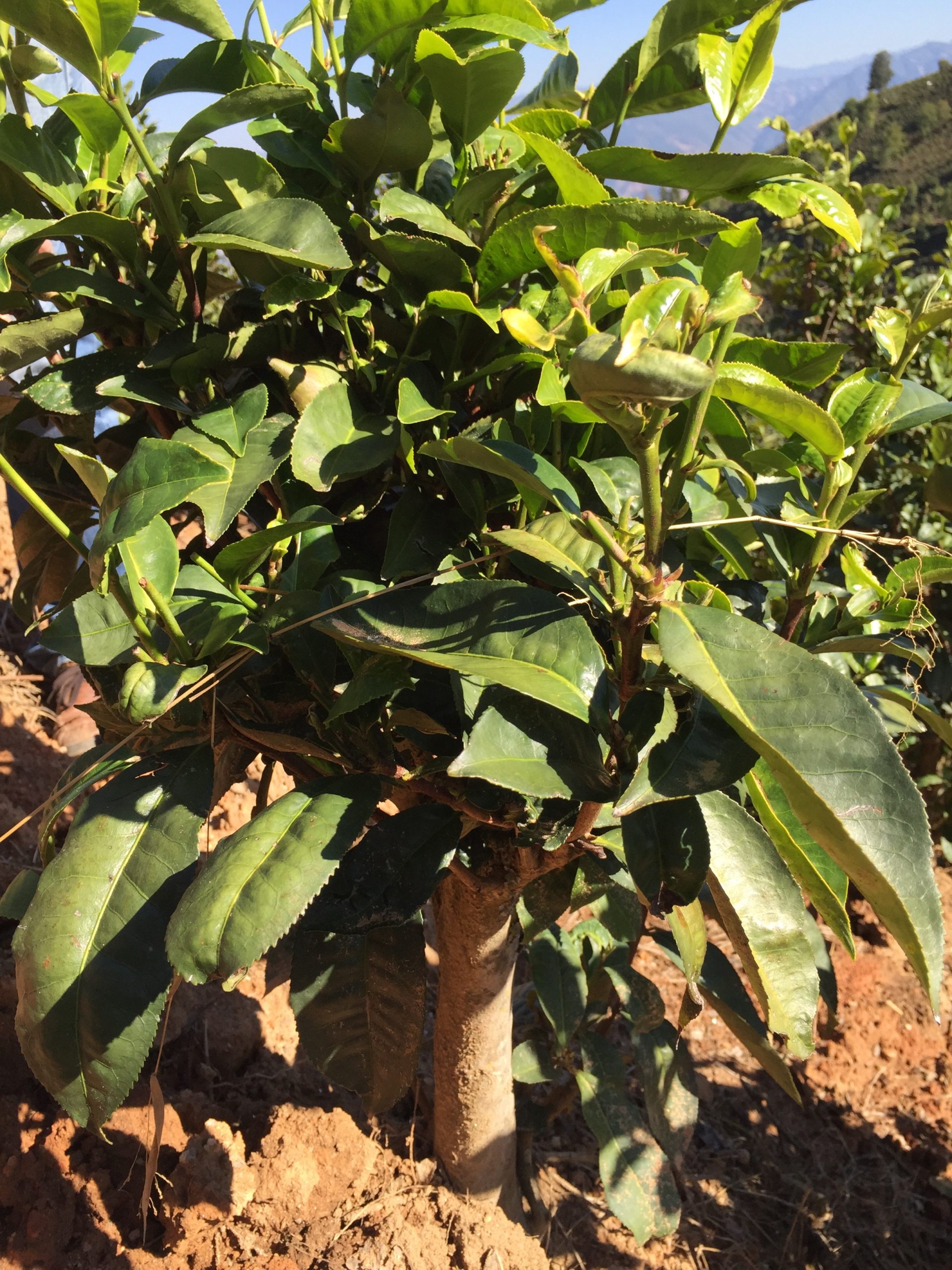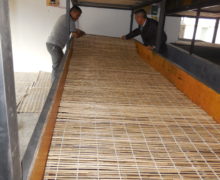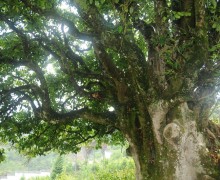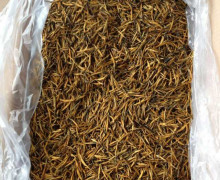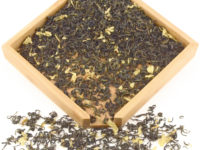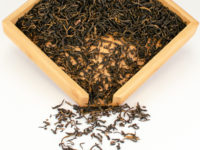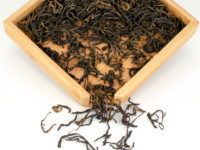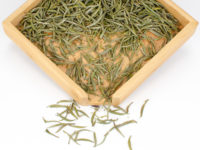Jinya (Yunnan Golden Buds)
Black Tea 2025
This black tea’s infusion is velvety, full, and sweet with a cocoa powder aroma even when brewed cold. Made only of hand-picked spring tea buds with a beautiful golden color and rich with antioxidants.
- Tea Origin
- Fengqing County, Lincang City, Yunnan Province, China
- Tea Bush
- Yunnan Dayezhong (Yunnan Large Leaf Tea Tree)
- Tea Maker
- Chen Keke and Li Dong
- Harvest Time
- Mid-March
- Plucking Standard
- One bud
The exclusive use of single young tea buds to make Jinya (Yunnan Golden Buds) is highly unusual for a black tea. Because of this, it possesses a very rich aroma that some people say resembles cacao. The flavor is smooth with a delicate sweetness that fills the entire palate. Golden Buds is truly a remarkable tea.
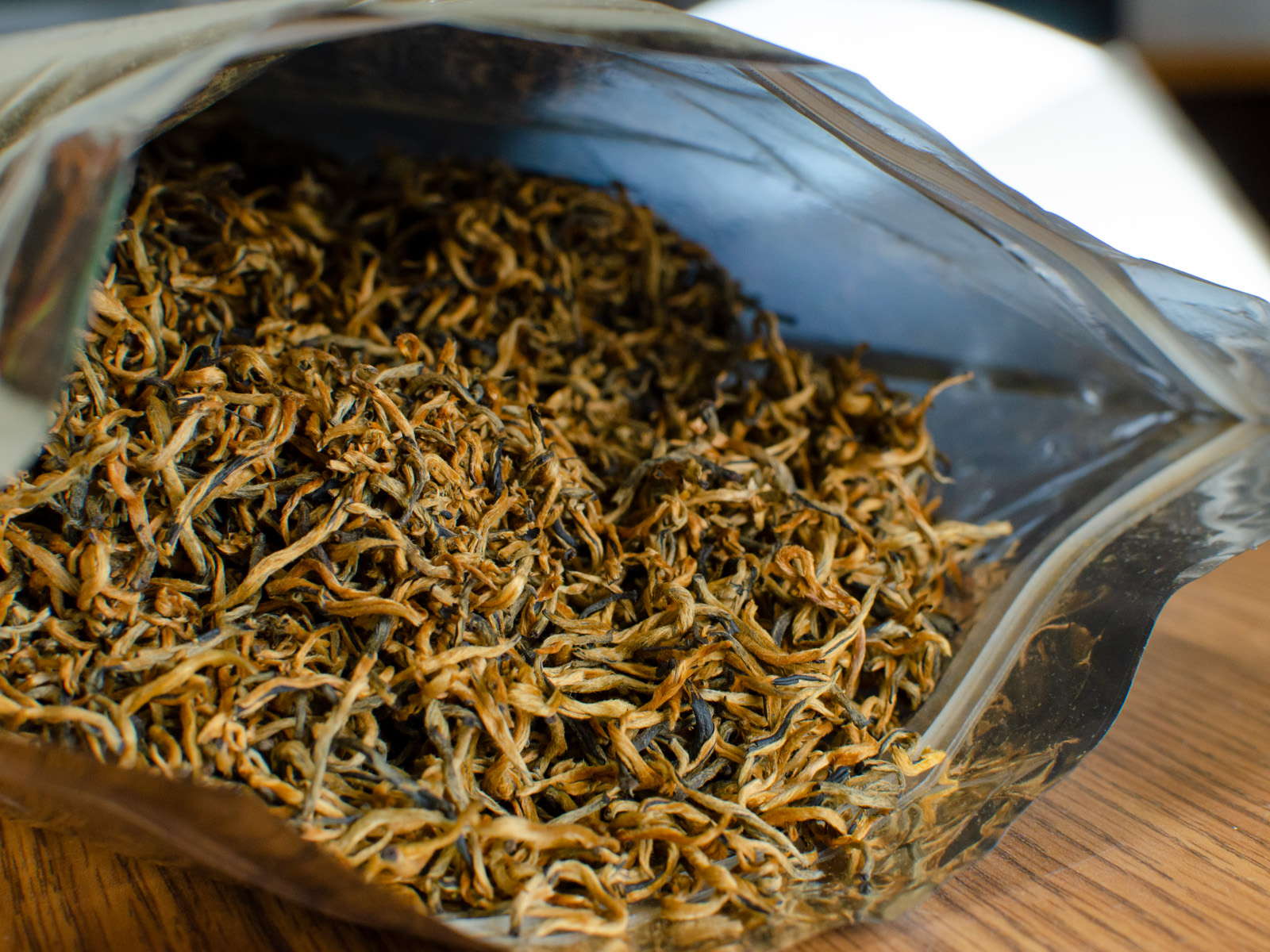
Our Jinya comes from the mountain forests of the Baiying region in Yunnan Province. It is harvested when the year’s first tea buds begin to grow in late March or early April. Most black teas are made from leaves that are harvested later in the season, and when oxidized and dried, they appear black in color. Young tea buds, on the other hand, are a beautiful golden color after processing. This is due to the rich antioxidants and lower amount of chlorophyll contained in the young growth. The fine fuzzy hairs on each bud are a testament to the tea maker’s skillful handling of the leaves without breaking them off.
The challenge of oxidizing black tea buds
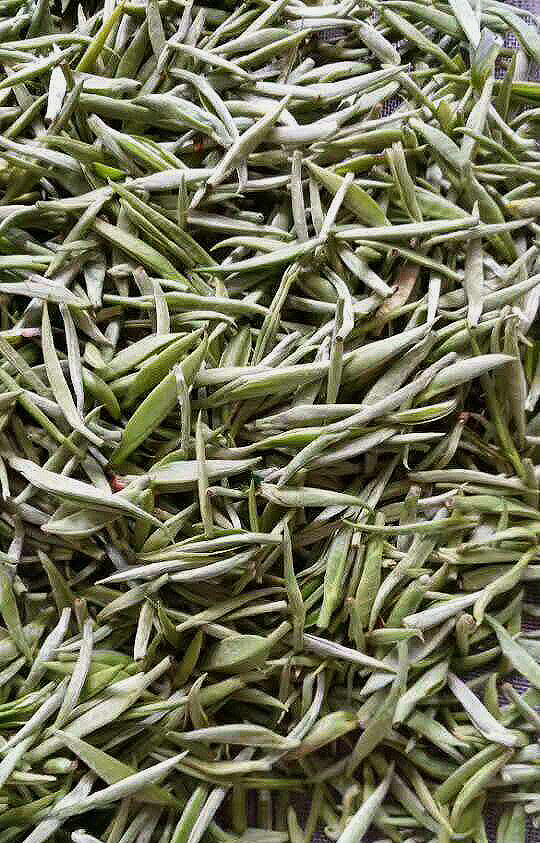
The Fengqing Tea Company first produced Jinya in 1959. Instead of the usual slightly more mature 1 bud to 2-3 leaf pluckings, they started making black tea with only tea buds. Yunnan Province was the first place to make black tea with leaf material this young. However, processing tea buds into a black tea requires an immense amount of skill to produce a good tea. If left on the tea bush, healthy tea buds will open five or six tea leaves. The tea maker must carefully control the oxidation process through every layer of the bud. Black tea that is over-oxidized will be sour, and if under-oxidized, the tea will be heavy and tannic. But with just the right touch and technique, black teas like Jinya emerge from the process with an exquisite rich aroma and a sweet and smooth flavor.
Processing black tea into golden buds
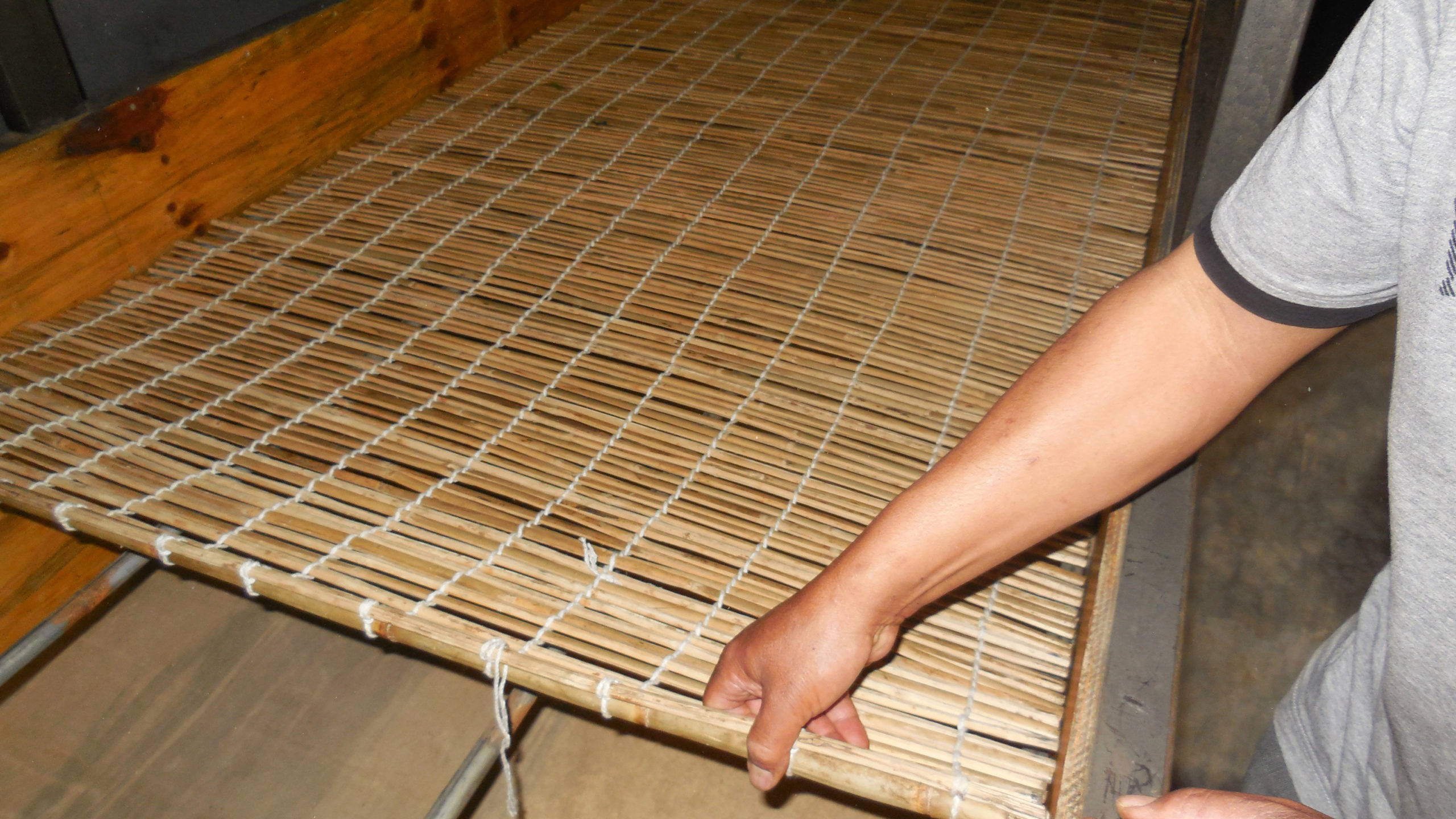
The tea maker will spread a thin and even layer of freshly harvested tea buds on a bamboo tray in a wind tunnel, where fans will blow air through the tunnel under the leaves to wither them for about 5-6 hours. After withering, tea makers knead the tea to develop its flavor and remove bitterness.The tea maker will then gently heat the leaves to remove about half of their water content. After that, the tea is ready to be oxidized.
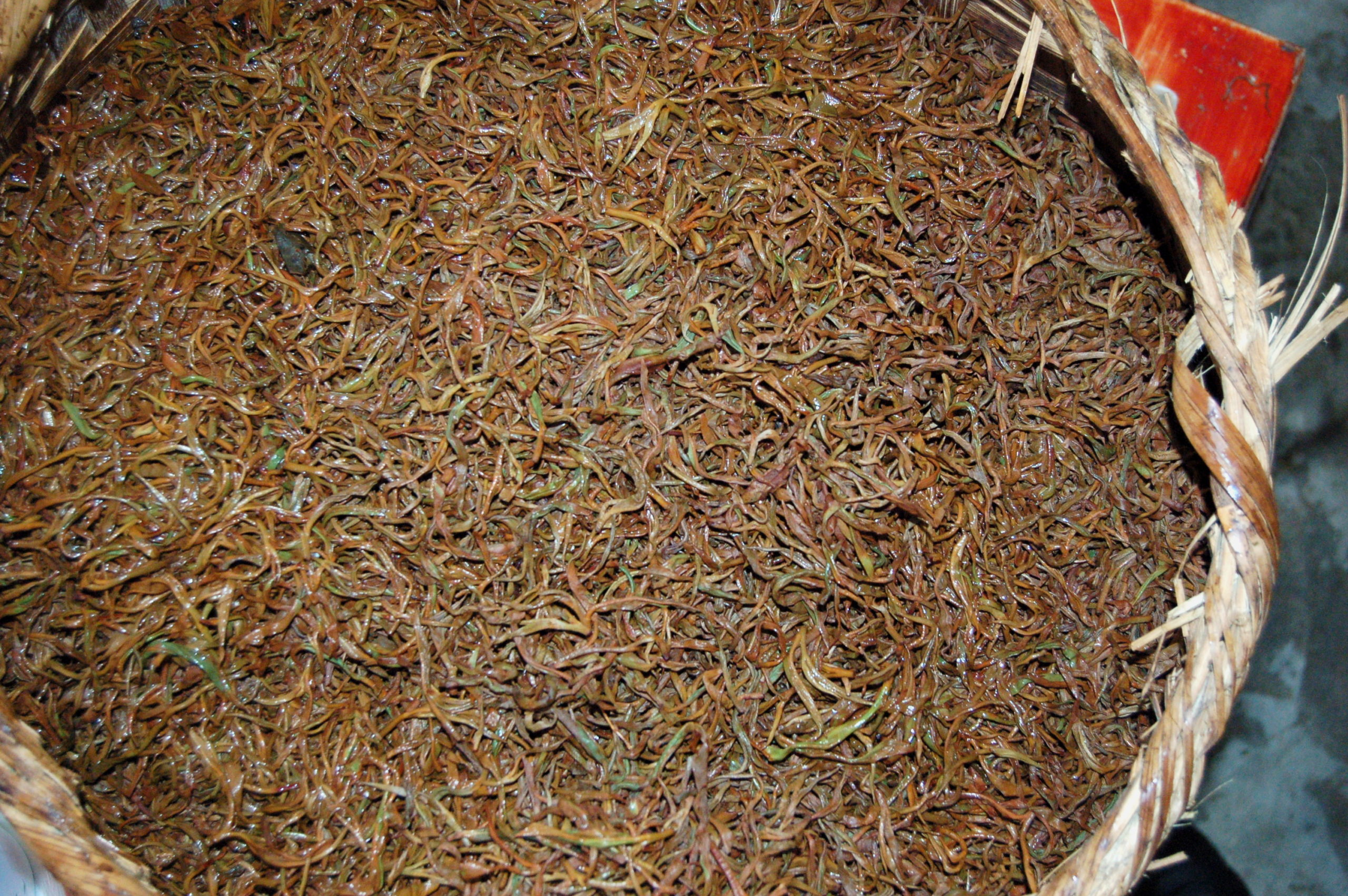
Oxidation requires heat and moisture. The tea is placed in wooden boxes covered with a thick piece of cloth to keep the environment warm and humid. This will oxidize the tea in a natural fashion. The tea maker must check the tea buds often to mix the tea intermittently and make sure heat is evenly distributed among the buds for even oxidation. They also need to manually check the condition of the leaves to determine when to arrest the oxidation process. They do this by squeezing and smelling the tea leaves, judging with well-honed senses of smell and touch. Oxidation is a critical step of the process that must be carefully controlled in order to develop the tea’s aroma and make sure the taste is sweet, smooth and free from any grassy flavor of under-oxidized leaves.
History of black tea in Yunnan
Yunnan Province began producing black tea in 1939. The Chinese wanted to move the business of exporting tea out of the east coast of China (then occupied by the Japanese Army) to the border of Burma in Yunnan. Two accomplished tea masters, Feng Shaoqiu and Fan Hejun, went to Yunnan to research the area for tea cultivation. They found that Fengqing County in southwest Yunnan was an ideal place to start producing good quality tea. The soil in this area is red in color and nutrient rich and already has a diversity of tea plants growing, some of them very old. They set up a factory and began to produce large quantities of tea. The Golden Buds style in specific, can be traced back to 1959 as a tea made for visiting dignitaries. The Dianhong company remains a large center of tea production and research in Yunnan today.
No chemical fertilizer, pesticide, or herbicide was used in the production of this tea. Click here to read more about our promise to fair trade and the environment.

